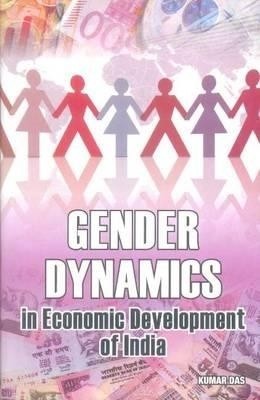Gender Dynamics 01 Edition(English, Hardcover, Das Kumar)
Quick Overview
Product Price Comparison
Gender Equality has become a buzzword in different for a across the globe. New books and literatures on Women development have been appearing with increasing rapidly. The ongoing globalization process has generated an over optimism around the globe. It has created an atmosphere of excitement of instant economic growth. But moving very fast in the economic ladder does not mean much unless it brings social development. The feminization of jobs in India is less meaningful. Because the ongoing commercialization process displaces the women. The neo-patriarchy gradually gets institutionalized at several spheres: work, culture, customs religion and education and education. She is not free to think as an individual. Technology and science has remained as divisive as divise as before. Software is dominated by females, while hardware is dominated by males. The preference for boy-child, drop out rate among girl-student, dowry, violence and dowry-related death have not decreased among the educated class. Thus we need a meaningful social transformation, which gives the equal human status to women. Empowerment of women is not a product but a process to evolve from the society itself but not be triggered by outside donors or agencies. This book arguine women development. It examines the gender implications of the economic development process. It highlights the impact of industrialisation and economic development on women. It analyses the gender equality under the broader framework of human development. It argues that idea of women development should be less nebulous and more practical. It asserts that we should have gender budgeting women empowerment in order to build a prosperous society. The author provides a systematic treatment organizing the increasingly influential new political economy as a more established field at the highly productive intersection of economics and society. By using his insightful experience the author demonstrates that national policies are the key determinants of women development. The book focusses on powerful economic and social dynamics. This text will have an enormous impact on planner, policy makers and social dynamics. This text will have an enormous impact on planner, policy makers and social activists, redefining how the policy maker should think about full range of gender. About the Author Dr Kumar Das was the Head of Dept of Economics of Utkal university, Bhuneswar. He obtained the doctoral fellowship in Applied Economics from Calcutta University in 1978 and earned his Ph.D. in 1984. He did his post doctoral work at the university of Bamberg (German) and obtained the D.Litt degree in 1995. He has 27 years of post graduate teaching and research experience. He has the wide experience of undertaking major research projects and guiding research scholars. Fifteen Ph.D scholars and 40 M.Phil scholars have been awarded under his supervision. To his credit he has authored 15 books and published about 130 research papers in reputed professional journals of India and abroad. He has extensively participated, chaired workshops. He is the member of Royal Economic Society (London), International Association of Regional Science (USA), List Society (German) and Society for International Development (Italy), LACDE (China). He has taught at the graduate schools of reputed universities of German, Italy, Argentina, China, Malaysia and Thailand. At present he is holding he prestigious RBI Chair at Utkal university. He is recognized as the adjunct faculty of Troy State University (USA) and Conventry University (UK). He is the visiting professor of Asian University (Thailand) and Sanghai University, China. He has an extensive work experience of : being the consultant to various organization, NGOs, corporate sector, Banks, insurance Companies; and undertaking research projects of World Bank, UNICEF, WHO, and the Government. His research interest includes Sustainable Development, Gender issues, Rural Development, Human development, Environment, Environmental issues, Displacement, and Disaster Management.


